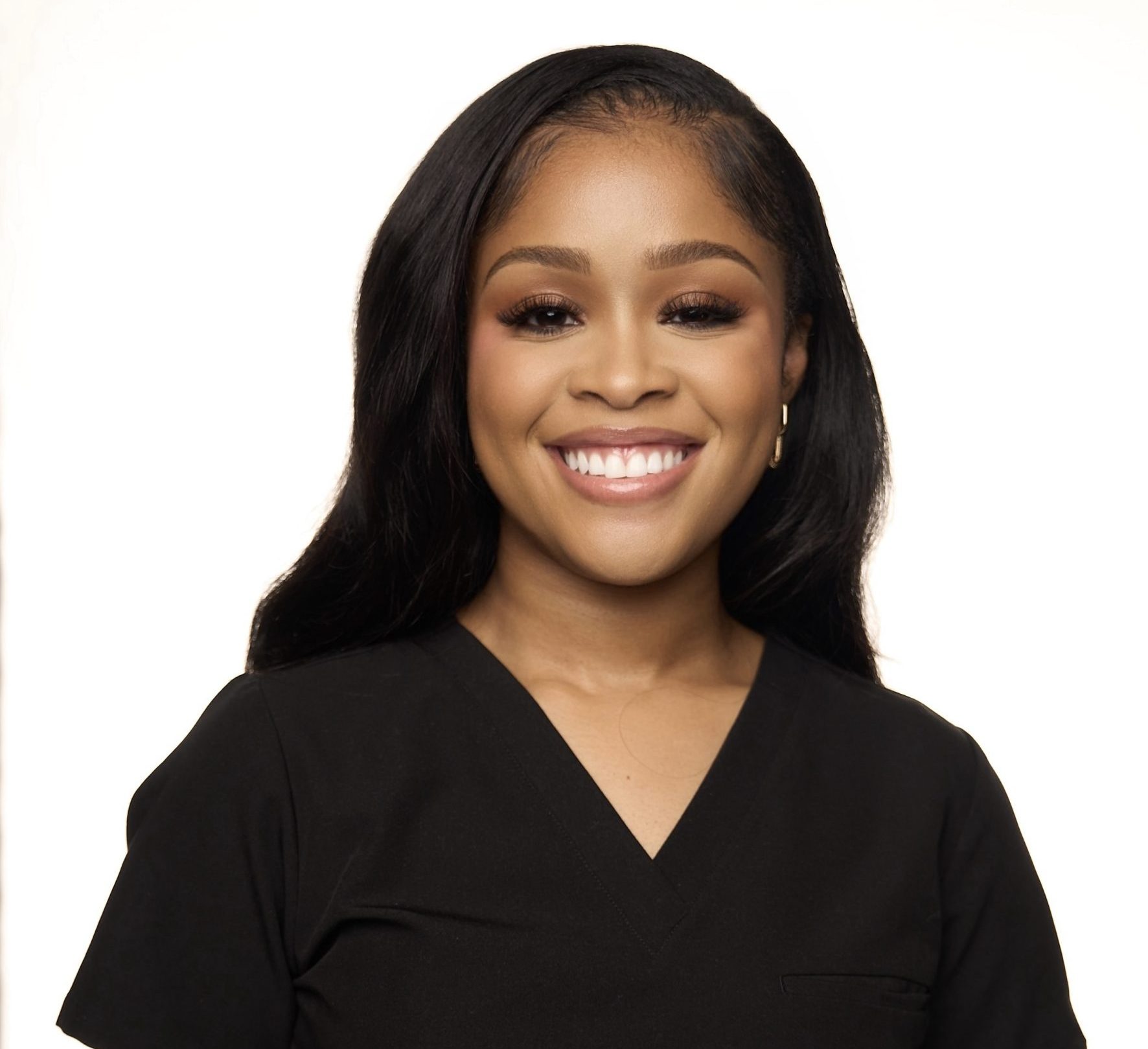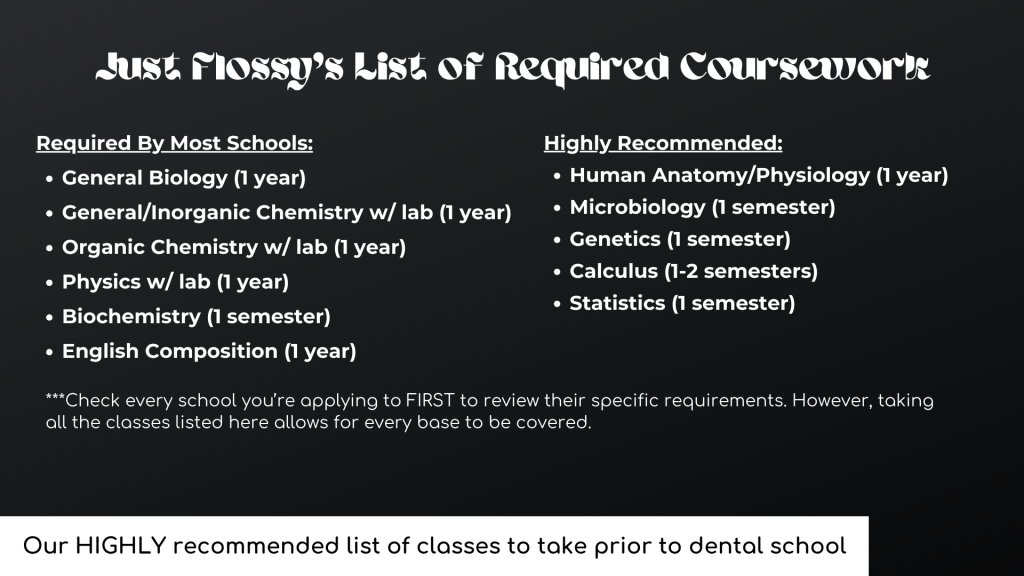Preparations
All about prerequisite coursework and majors. We are setting the foundation.

Written By: Caylen Davis, DDS
Last Updated: June 2024
Let’s set the scene, shall we?
It’s your freshman year at your college or university. With your lanyard around your neck and your backpack on your shoulders, you’re both excited and nervous to be starting this new yet exciting journey as a college student. While you’re clearly very busy trying to find your way around campus and deciding on how to decorate your dorm room wall, there’s still that nagging voice in the back of your head asking you: “Have you figured out what classes you need to take for dental school?”
Relatable? Well, whether you have your life all planned out as soon as you step on campus, or you wait a few semesters to decide on your career path, it’s always a good idea to have some sense of direction as you begin your dentistry journey. Figuring out where to start can be both challenging and overwhelming, but let this article help you find the way. And what’s the first step?: planning the appropriate coursework
Academic Planning: What Classes to Take
Dentistry is founded on certain scientific principles requiring certain prerequisites. Basically, all dental schools require the following:
– General Biology with lab (1 year)
– General Chemistry with lab (1 year)
– Organic Chemistry with lab (1 year)
– Physics with lab (1 year)
– Biochemistry (1 semester)
– English Composition (1 year)
While not always required by every school, these are HIGHLY recommends these other courses:
– Human Anatomy/Physiology (1 year)
– Microbiology (1 semester)
– Genetics (1 semester)
– Statistics (1 semester)
– Calculus (1-2 semesters)
What Classes Are Needed Prior to Taking the DAT?
While all of the above courses are “required”, there are some that will directly help you prepare for the Dental Admission Test (DAT). It is recommended to complete the following courses before taking the DAT:
Covered in the Natural Sciences:
– General Biology I & II
– Genetics
– Human Anatomy/Physiology
– General Chemistry I & II
– Organic Chemistry I & II

Which Classes Can Wait
Although required before matriculation, more difficult courses like physics and biochemistry can wait until later in your college career to complete. If you’re worried about any classes that can lower your GPA, try to plan your semester accordingly. Don’t take multiple difficult classes at once, try to find a good balance.
If there are concerns regarding these classes, consider applying to your dental schools first with these courses planned in the upcoming semesters. That way, you only have to pass without fear of these negatively affecting your application GPA. The AADSAS application has a few academic update (AU) periods where pre-dental students can add planned/in-progress courses and enter new grades. Therefore, plan to take these classes during your senior year and add in your progress throughout the application cycle.
Author’s note: This only applies to those who plan to attend dental school immediately after undergrad. If you are a gap year student or a non-traditional student, then you will likely have all undergraduate prerequisites completed prior to applying.
Picking An Academic Major
While most pre-dentals pick a science major like biology, please remember that there are no specific majors you must choose from in order to enter dental school. Whether it’s chemistry, English, or sociology, all majors are looked at equally. Just Flossy encourages majoring in something that you find genuinely interesting and will excel in.
Author’s note: I chose to major in biology because I have always had a love for the natural sciences. But I also picked up a minor in Africana Studies my freshman year to incorporate my passion for that as well. Do some self-reflecting and make your academic journey as painless as possible.

The Big Picture
Your class schedule is the first stepping stone in the long journey to come. Plan accordingly and stay organized; this is what will help you succeed.
Always remember that it’s okay to struggle sometimes. These courses can be challenging, but keep in mind that they’re not impossible. Stay positive and rise from your failures! If a subject is giving you trouble, use the resources on your campus (e.g. your professor’s office hours, tutoring, academic advising, etc). And of course, Just Flossy is here as a resource for you as well.
